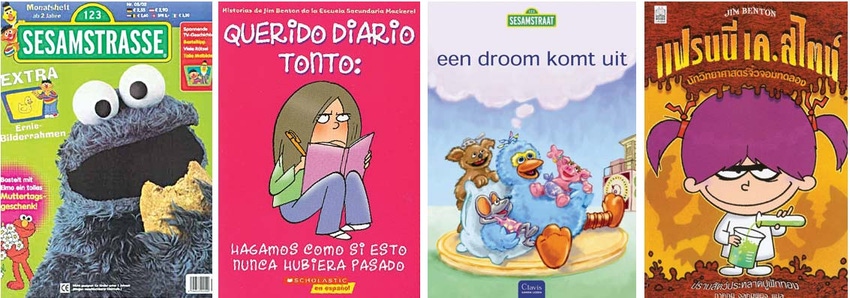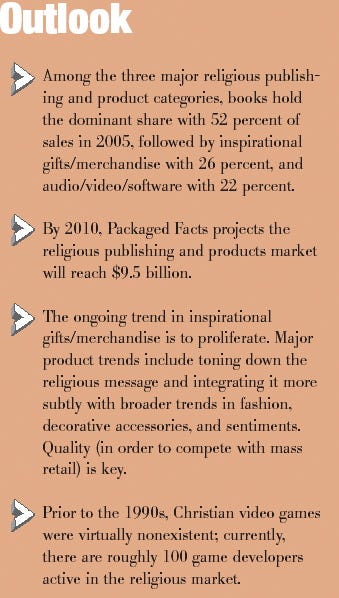]> Provided retail remains healthy, the religious market will continue to grow. According to Simmons Market Research, close to two-thirds of American adult
April 6, 2018

]>
Provided retail remains healthy, the religious market will continue to grow.
According to Simmons Market Research, close to two-thirds of American adults (128 million or 62 percent) believe faith is important in their lives. Approximately half (101 million or 49 percent) believe it is important to attend a religious service. For those who agree with conservative evangelical Christians, these adults number 64 million or one-third (32 percent) of U.S. adults.
Those are impressive numbers for today's marketers. And, regardless of individual faiths and beliefs, the overall religious market for publishing, inspirational merchandise, and audio/video/software product is expected to reach new spiritual heights by 2010, according to a recent Packaged Facts report. For further perspective, in 2005, the U.S. religious publishing and products market reached $7.3 billion, up 9 percent over 2004. Growth registered in 2004 was 12 percent over 2003. From 2002 to 2005, the religious publishing and products market increased 28 percent. 

At the retail level, the religious publishing and products market is led by specialty religious outlets, which account for 45 percent of sales, followed by mass retail outlets (35 percent), and direct-sales outlets (20 percent). Most of the specialty religious retailers are members of the Christian Booksellers Association (CBA). Mass retail includes chain bookstores such as Barnes & Noble and Borders and big-box retailers such as Wal-Mart, Target, Sam's Club, and Costco. Direct sales includes mail-order catalogs and the Internet (Amazon.com is among the leaders in the direct-sales retail category). Overall, the U.S. is a predominantly religious country; the Southwest and Southeast are slightly more inclined than other regions to be home to religious believers, but not to a significant degree.
Further to retail, CBA stores have experienced decline, as they have been unable to compete and have gone out of business or been swallowed up by chain stores. If the shrinkage of the independent retail market continues, the positive future growth of the religious market could be undermined.
When it comes to consumer demos, the report reveals aging Baby Boomers represent a positive factor in the future growth of the religious market, as does the Christian Hispanic market. In addition, says the report, the Christian Evangelical movement has resulted in the publishing and production of books, music, movies, gifts, merchandise, and electronic products.
You May Also Like






